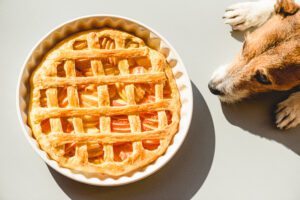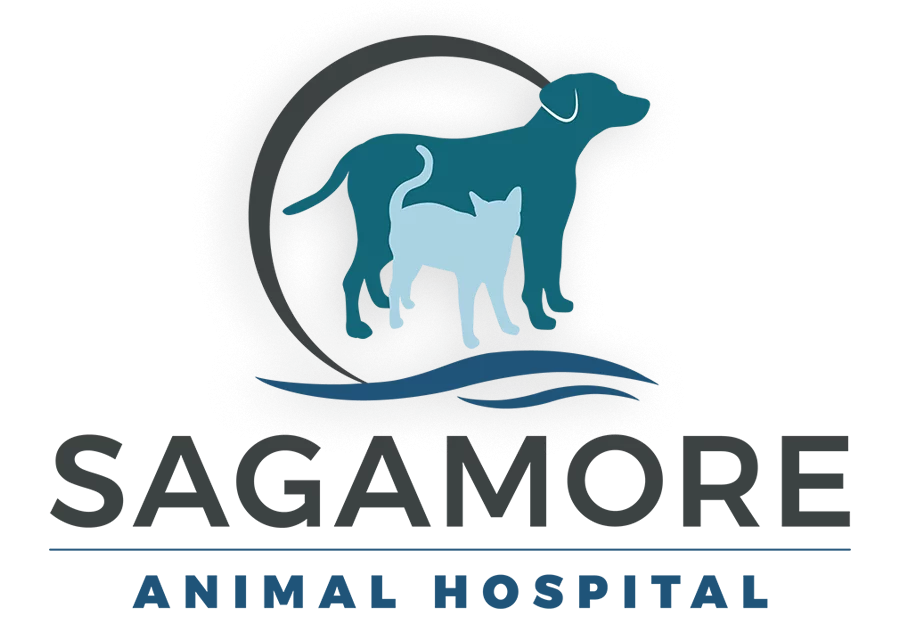Top Holiday Foods That Are Dangerous for Pets
Thanksgiving is a special time for gathering with family and friends and enjoying a wonderful meal. However, this festive occasion can also present certain hazards to our four-legged family members. At Sagamore Animal Hospital in Rye, NH, we are dedicated to helping you keep your pets safe and healthy. This article will highlight the potential risks that Thanksgiving foods may pose to your pets and offer helpful tips for pet owners.
Should you have any worries or require additional advice, please feel free to call us at (603) 431-8785 for professional help and support from our team!

Key Thanksgiving Food Hazards for Pets
Below are the most common (and important) holiday food hazards for pets:
Turkey and Turkey Bones
Cooked Turkey: While a small amount of plain, cooked turkey can be a tasty treat for pets, make sure it doesn’t contain any seasoning, garlic, onions, or butter. These additives can upset your pet’s stomach or be toxic.
Turkey Bones: These bones, especially when cooked, are brittle and can easily splinter. Splintered bones can cause serious injuries such as punctures or blockages in the digestive tract. They also pose a choking risk and can damage your pet’s teeth.
Rich, Fatty Foods
Foods high in fat, like gravy, buttery dishes, and skin from the turkey, can be hard for pets to digest. Ingesting these can lead to vomiting, diarrhea, and in severe cases, pancreatitis, a painful and potentially serious inflammation of the pancreas.
Sweet Treats and Baking Ingredients
Chocolate: A well-known toxin for dogs and cats, containing theobromine and caffeine. Even small amounts can be dangerous.
Xylitol: An artificial sweetener found in sugar-free desserts and baking ingredients. It’s extremely toxic to dogs and can cause hypoglycemia and liver failure.
Raisins and Grapes: Common in many desserts, they can cause kidney failure in pets.
Alcoholic Beverages and Dough
Alcohol: Even small amounts can be toxic to pets, leading to weakness, coma, or in severe cases, death.
Raw Dough: Yeast dough can expand in your pet’s stomach, causing pain and potentially leading to a life-threatening emergency.
Vegetables and Seasonings
Onions and Garlic: Both are toxic to pets and can cause oxidative damage to red blood cells, leading to anemia.
Seasonings: Many herbs and spices used in Thanksgiving cooking can be harmful to pets.
How to Keep Your Pets Safe
Follow these steps to prevent a pet emergency:
Food Safety
Secure Your Kitchen: Keep pets out of the kitchen during meal prep and cooking to prevent accidental ingestion of harmful foods.
Proper Storage: Ensure all your leftovers are stored out of reach. Securely tie garbage bags to prevent your pet from scavenging.
Create a Pet-Safe Environment
Designate a Pet Area: During the festivities, set up a comfortable space for your pet away from the dining area to prevent accidental food ingestion.
Monitor Your Pets: Keep an eye on your pet, especially if you’re hosting a large gathering, to ensure they don’t eat something they shouldn’t.
Educate Guests
Establish Feeding Rules: Politely inform your guests about the dangers of feeding table scraps to your pets.
Watchful Interaction: Ensure guests, especially children, understand how to interact safely with your pets.
Find Pet-Friendly Food Alternatives
Special Treats: Prepare pet-safe treats like plain, cooked turkey pieces, and plain cooked vegetables like carrots, sweet potatoes, or green beans.
Interactive Toys: Keep your pet entertained with chew toys or puzzle feeders during meal times.
Emergency Preparedness
Know the Signs: Be aware of symptoms like vomiting, diarrhea, lethargy, or changes in behavior that could indicate your pet has eaten something harmful.
Emergency Contacts: Have the number for Sagamore Animal Hospital and a local emergency veterinary clinic readily available.
By understanding these hazards and taking proactive steps, you can help ensure a safe and enjoyable Thanksgiving for your entire family, including your beloved pets. If you ever have concerns or need advice, remember that Sagamore Animal Hospital in Rye, NH, is here to help. Just give us a call at (603) 431-8785!
Recent Posts
About Us
We're proud to have many long-time staff members at our hospital who get along like family and treat their patients and clients the same. The compassion and commitment of our veterinarians and staff make our team a reliable, trusted partner for you and your pet.

